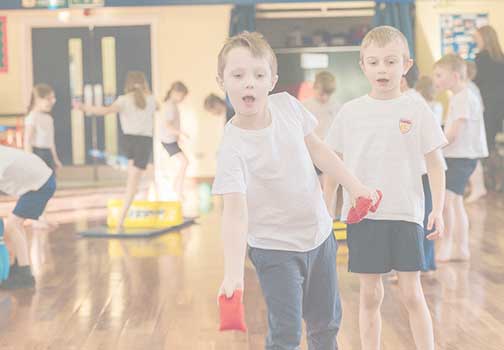Phonics and Early Reading
.Please click on the link below to explore the Little Wandle Letters and Sounds Revised Parent Information Page, which includes 'How to' videos.
https://www.littlewandlelettersandsounds.org.uk/resources/for-parents/
Intent
We use the Little Wandle Letters and Sounds Revised to plan and provide daily engaging phonics lessons starting in Reception class. Phonic strategies are also modelled throughout the day and across the curriculum. In addition, we also model the application of the alphabetic code through phonics in shared reading and writing, both inside and outside of the phonics lesson and across the curriculum.
In phonics, we teach children that the letters of the alphabet represent a different sound, that these can be used in a variety of combinations and are put together to make words. The children learn to recognise all of the different sounds and combinations that they might see when they are reading or writing. Teaching follows a clear sequence of letter and sound correspondences which then allows our children to build on their previous phonic knowledge and master specific phonic strategies as they move through school. This phonic knowledge allows children to tackle unfamiliar words that they are reading or choosing to write across their day.
We have a strong focus on the development of language skills for our children because we know that speaking and listening are crucial skills for reading and writing in all subjects.
At Capel Primary School, we value reading as a crucial life skill. By the time children leave us, they read confidently for meaning and regularly enjoy reading for pleasure. Our readers are equipped with the tools to tackle unfamiliar vocabulary. We encourage our children to see themselves as readers for both pleasure and purpose.
Implementation
How we teach early reading:
Daily phonics lessons in Reception and KS1.
- We teach phonics for 30 minutes a day. In Reception, we build from 10-minute lessons, with additional daily oral blending games, to the full-length lesson as quickly as possible. Each Friday, we review the week’s teaching to help children become fluent readers.
- Children make a strong start in Reception: teaching begins in Week 2 of the Autumn term.
- We follow the Little Wandle Letters and Sounds Revised expectations of progress:
- Children in Reception are taught to read and spell words using Phase 2 and 3 GPCs, and words with adjacent consonants (Phase 4) with fluency and accuracy.
- Children in Year 1 review Phases 3 and 4 and are taught to read and spell words using Phase 5 GPCs with fluency and accuracy.
- Children in year 2 recap any gaps in their phonics knowledge in the autumn term.
Daily Keep-Up lessons ensure every child learns to read
- Assessment is used to monitor progress and to identify any child needing additional support as soon as they need it.
- Any child who needs additional practice has daily Keep-up support, taught by a fully trained adult. Keep-up lessons match the structure of class teaching, and use the same procedures, resources and mantras, but in smaller steps with more repetition, so that every child secures their learning.
- We timetable daily phonics lessons for any child in Year 2 and above who is not fully fluent at reading or has not passed the Phonics screening check. These children urgently need to catch up, so the gap between themselves and their peers does not widen. From Spring term Yr2 we use the Rapid Catch-up assessments to identify the gaps in children’s phonic knowledge and teach to these using the Rapid Catch-up resources – at pace.
- These short, sharp lessons last 15-20 minutes daily and have been designed to ensure children quickly catch up to age-related expectations in reading.
- For children with identified Cognition and Learning difficulties we use the Little Wandle SEND materials to teach pupils using the Graduated Approach – Assess, Plan, Do and Review.
Teaching reading: Reading practice sessions three times a week
- Children across Reception, Year 1, Year 2 (and beyond if appropriate) apply their phonics knowledge by using a full matched decodable reader in a small group reading practice session.
- These sessions are 15 minutes long and happen three times a week. There are approximately 6 children in a group and children are taught by a fully trained adult are monitored by the class teacher
- Each reading practice session has a clear focus, so that the demands of the session do not overload the children’s working memory. The reading practice sessions have been designed to focus on three key reading skills:
- decoding
- prosody: teaching children to read with understanding and expression
- comprehension: teaching children to understand the text.
- The children then take the same book home to ensure success is shared with their family.
- In Reception these sessions start in week 4. Children who are not yet blending take a wordless book home and daily additional blending practice in small groups, so that they quickly learn to blend and can begin to read books.
Home reading
- In addition to a ‘fully decodable book’, Reading for pleasure books also go home for parents to share and read to children. We share the research behind the importance and impact of sharing quality children’s books with parents through workshops, leaflets and the Everybody read! Wandle resources.
- We share Little Wandle Letters and Sounds Revised parents’ resources to support our families. We share information about phonics, the benefits of sharing books, how children learn to blend and other aspects of our provision. This information is disseminated via letters, signposting to online materials, as well as through parent information sessions and workshops that are held throughout the year.
Reading for pleasure – Early Years and KS1
Alongside daily teaching of phonics, reading for pleasure is an important part of our Early Reading offer. We ensure children develop a love of reading and are exposed to a range of interesting and relevant authors. We promote a love of reading in the following ways:
- We read to children every day. We choose these books carefully as we want children to experience a wide range of books, including books that reflect the children at Capel Primary School and our local community as well as books that open windows into other worlds and cultures.
- Whole class reading sessions which include a range of books that are mapped out to ensure children have a rich reading diet, vocabulary is explicitly taught and children can learn key phrases in the book.
- Every classroom has an inviting book corner/area that encourages a love for reading. We organise these books and talk about them to entice children to read a wide range of books, including books by the focus author.
- In Reception, children have access to the reading corner every day in their free flow time and the books are continually refreshed.
- Children from Reception onwards have a home reading record, however parents and school may also share feedback via virtual communication, particularly via Tapestry within the Reception class.
- Alongside children’s decodable reading book, children also take home a reading for pleasure book each week. In each year group, children will take home a range of book by authors, including some which they have read in class.
Impact
Assessment
Assessment is used to monitor progress and to identify any child needing additional support as soon as they need it.
- Assessment for learning is used:
- daily within class to identify children needing Keep-up support
- weekly in the Review lesson to assess gaps, address these immediately and secure fluency of GPCs, words and spellings.
- Summative assessment for Reception and Year 1 is used:
- every six weeks to assess progress, to identify gaps in learning that need to be addressed, to identify any children needing additional support and to plan the Keep-up support that they need.
- by SLT and scrutinised through the Little Wandle Letters and Sounds Revised assessment tracker, to narrow attainment gaps between different groups of children and so that any additional support for teachers can be put into place.
- Fluency assessments measure children’s accuracy and reading speed in short one-minute assessments. They are used:
- in Year 1, when children are reading the Phase 5 set 3, 4 and 5 books
- with children following the Rapid Catch-up programme in Years 2 to 6, when they are reading the Phase 5 set 3, 4 and 5 books
- to assess when children are ready to exit their programme. For Year 1 children, this is when they read the final fluency assessment at 60–70+ words per minute. Older children can exit the Rapid Catch-up programme when they read the final fluency assessment at 90+ words per minute. At these levels, children should have sufficient fluency to tackle any book at age-related expectations. After exiting their programme, children do not need to ready any more fully decodable books.
- A placement assessment is used:
- with any child new to the school in Reception and Year 1 to quickly identify any gaps in their phonic knowledge and plan and provide appropriate extra teaching.
- The Rapid Catch-up assessment is used
- with any child new to the school in Year 2 and above to quickly identify any gaps in their phonic knowledge and plan and provide appropriate extra teaching.
Statutory assessment
- Children in Year 1 sit the Phonics screening check. Any child not passing the check
re-sits it in Year 2.
Ongoing assessment for Rapid Catch-up in Years 2 to 6
- Children in Year 2 to 6 are assessed through:
- the Rapid Catch-up initial assessment to quickly identify any gaps in their phonic knowledge and plan appropriate teaching
- the Rapid Catch-up summative assessments to assess progress and inform teaching
- the Rapid Catch-up fluency assessments when children are reading the Phase 5 set 3, 4 and 5 books for age 7+.
- The fluency assessments measure children’s accuracy and reading speed in short
one-minute assessments. They also assess when children are ready to exit the Rapid Catch-up programme, which is when they read the final fluency assessment at 90+ words per minute.
.Please click on the link below to explore the Little Wandle Letters and Sounds Revised Parent Information Page, which includes 'How to' videos.
https://www.littlewandlelettersandsounds.org.uk/resources/for-parents/
| Name | |
|---|---|
| ls-phonics-and-early-reading-policy 25-26.docx | Download |














